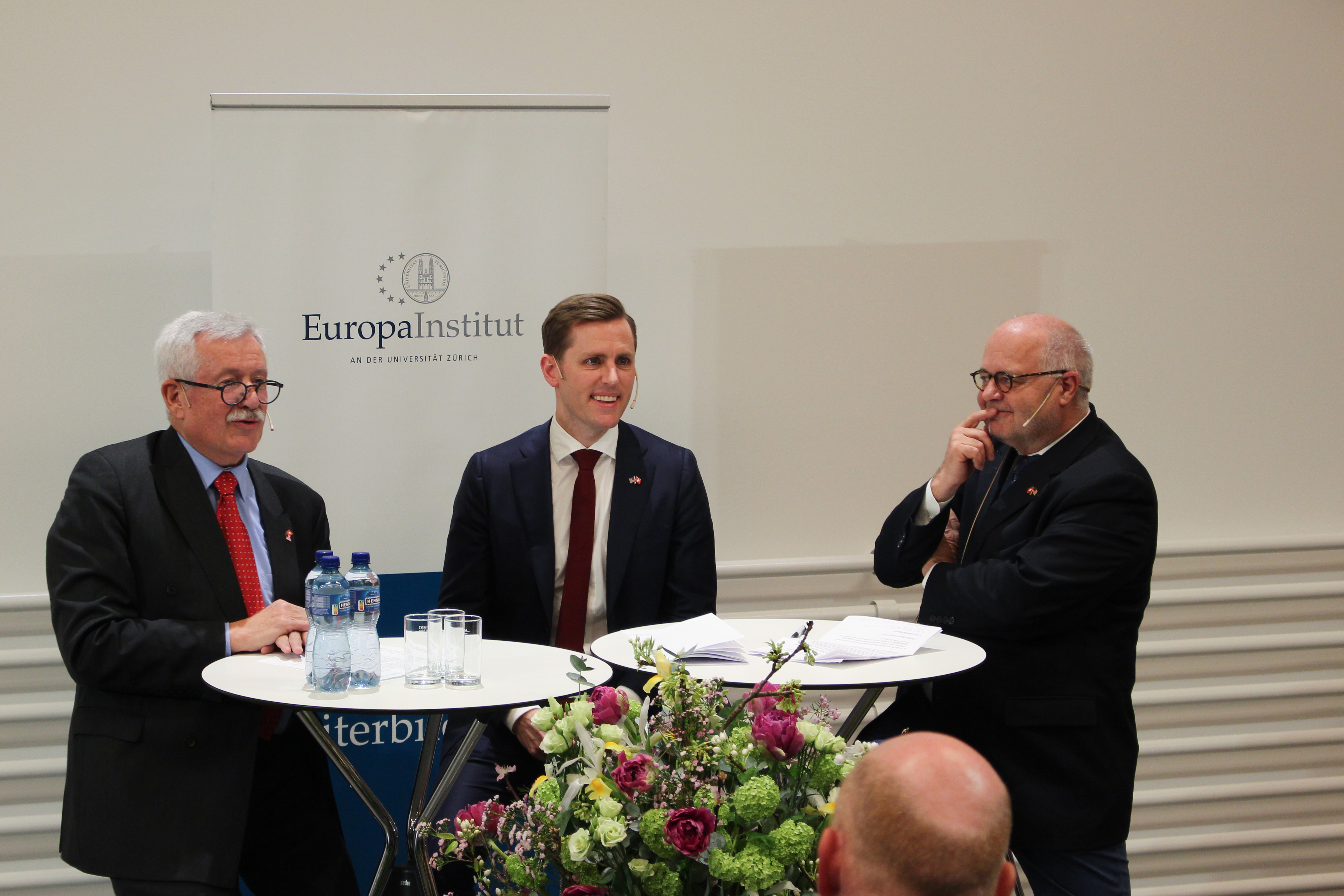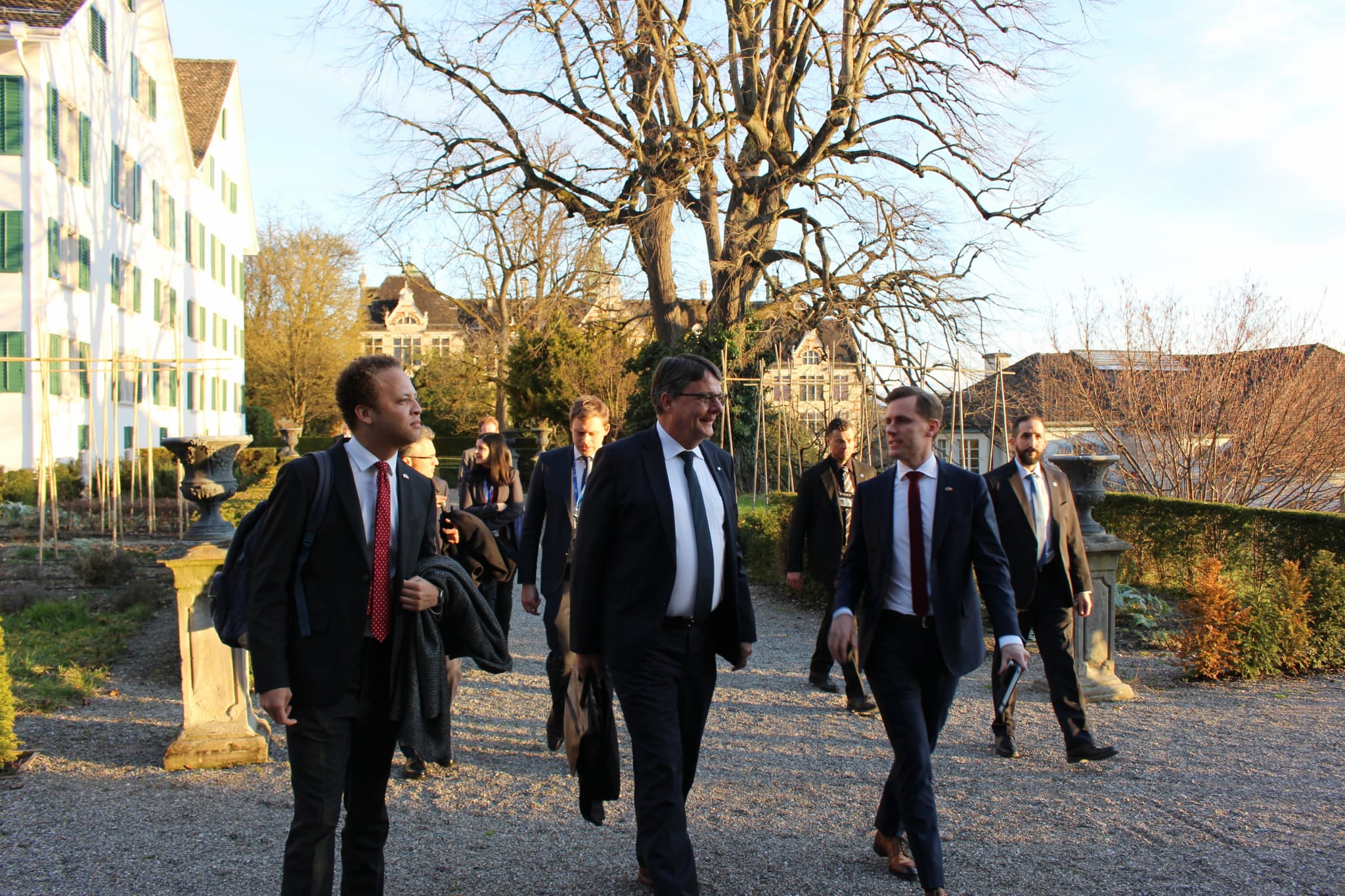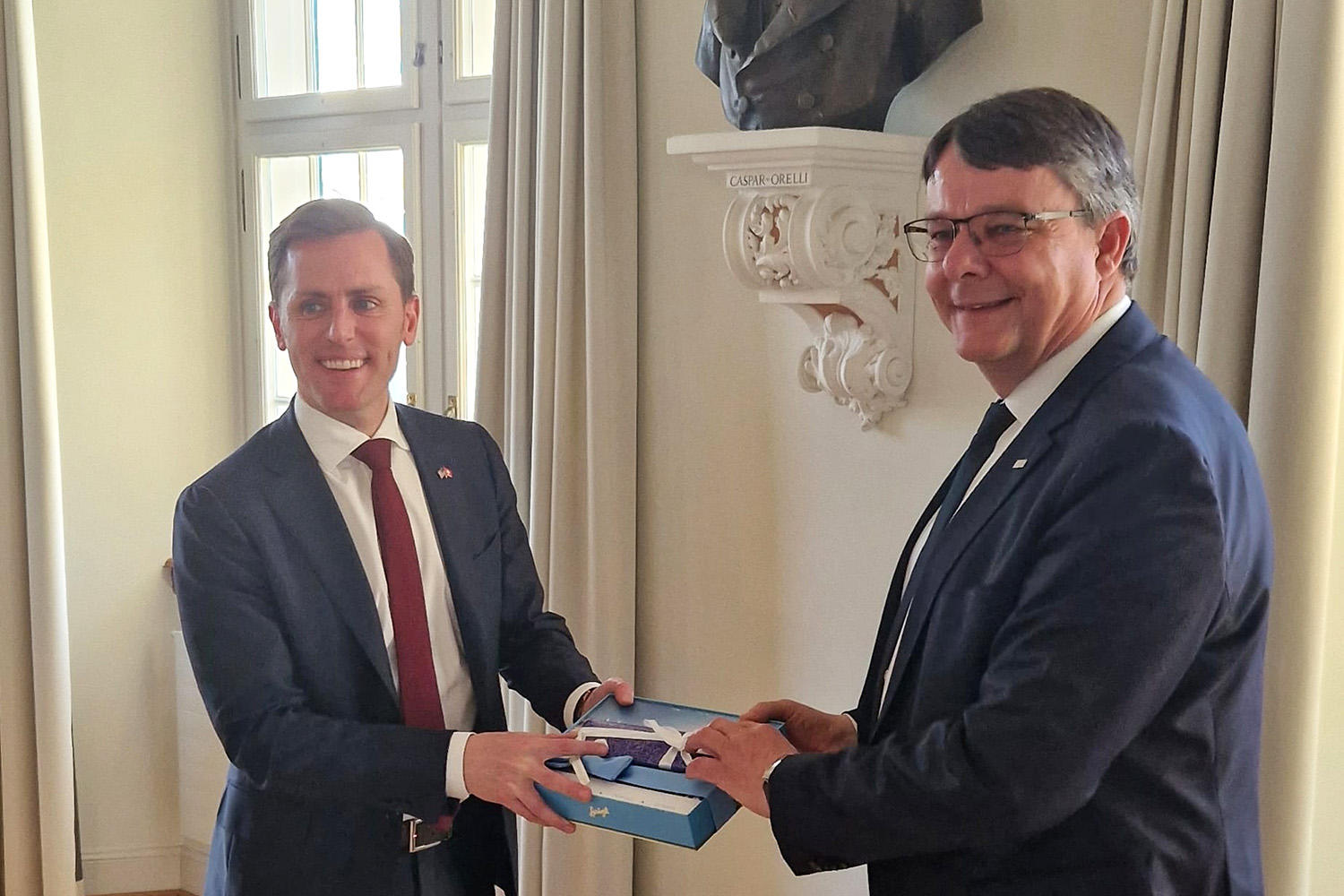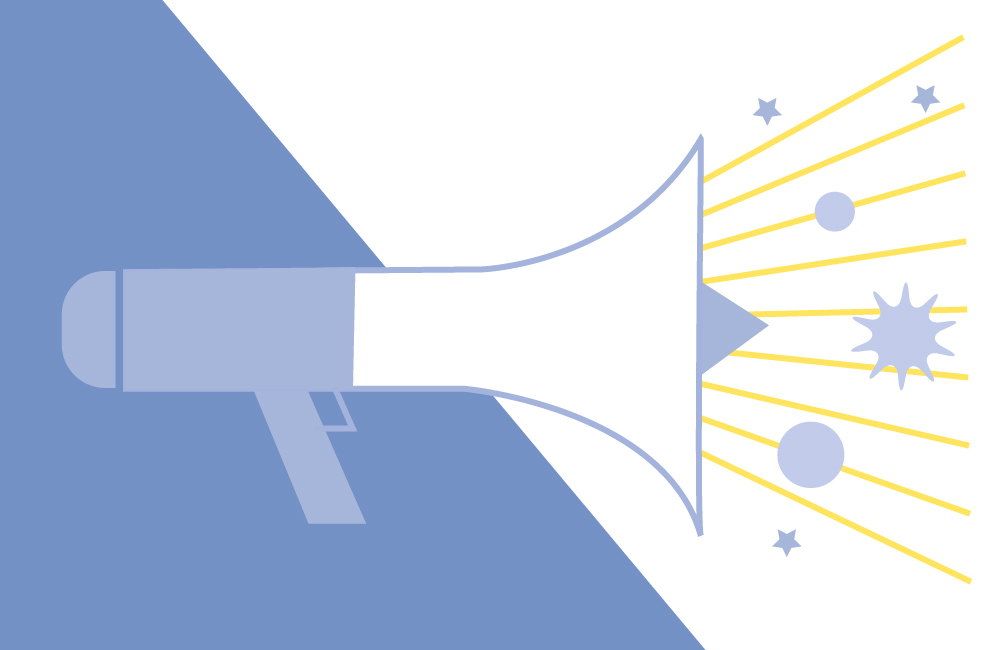"Let's Continue to Stand Together for Democracy"
On his inaugural visit to UZH, US Ambassador Scott C. Miller highlighted the shared values of Switzerland and the USA as sister republics as well as the importance of the longstanding relationship in international politics, academia and beyond.

UZH welcomed the Ambassador of the United States of America to Switzerland and Liechtenstein, Scott C. Miller, on his inaugural visit at UZH. Building on a strong collaboration in research as well as shared values as sister republics, the Ambassador highlighted the importance of the long-standing relationship between Switzerland and the USA in international politics, academia and beyond.
UZH's collaboration with US universities
UZH maintains close relationships with many US universities. Besides a lively staff and student exchange, there are currently over 700 active research collaborations in fields such as Alzheimer's medication and stem cell research. These collaborations have resulted in more than 10’000 joint publications over the last five years, amongst others with the Massachusetts Institute of Technology, the University of Maryland, the Harvard Medical School and the University of California.
Exchange on space economy and sustainable taxation
During a closed meeting, the Ambassador had the opportunity to learn more about UZH’s research in two fields with high relevance for both the US and Switzerland and to engage in a discussion with members of UZH's Executive Board.
UZH President Michael Schaepman presented the UZH Space Hub, with its research groups from the fields of earth observation, space life sciences, astrophysics, and supercomputing. The UZH Space Hub is positioned to play a decisive role in shaping the growing space economy and space industry. Its partnership with NASA's Kennedy Space Center and Space Florida provides direct access to the Aerospace Cluster in Florida and the International Space Station.
Professor René Matteotti, an expert in Swiss, European and International Tax Law, provided valuable insights on ways to reduce tax avoidance and evasion in the context of Swiss-US relations. The discussion is particularly important given the current political climate in many Western capitals, including Washington D.C., where there is a growing focus on taxing corporates and wealthy individuals. Moreover, Professor Matteotti shared his perspectives on how to tax digital assets, proposing the adoption of a “Crypto-Asset Reporting Standard” (CARF) as means to work towards international tax compliance with this emerging asset class.
The role of democracy, neutrality and shared values between the sister republics
The Ambassador also held a public lecture on the topic "Sister Republics - War and Neutrality", emphasizing the shared history between the two nations: “The United States appreciates everything that Switzerland has done around the world”. As a well-known LGTBQ activist, Ambassador Miller specifically referred to shared values such as the role democracy plays in expanding certain rights to individuals.
The presentation was followed by a fireside talk with Martin Dahinden, former Ambassador of Switzerland to the United States, and Professor Andreas Kellerhals, Director Europa Institute at the University of Zurich (EIZ), addressing questions as diverse as the situation in Ukraine, Swiss-US free trade and double taxation.
Regarding the current geopolitical confrontation in Eastern Europe, Ambassador Miller acknowledged that Switzerland, as traditionally neutral country, faces a difficult position. However, he reiterated the US’s demand for Switzerland to relax current weapon export laws for third countries to support Ukraine in the war.
Despite these challenges, the Ambassador emphasized the importance of the strong and long-standing bilateral relationship between Switzerland and the United States. The two countries have a lot in common: “Let’s continue to stand together for democracy,” he said in front of the full lecture hall.
Strengthening the ties in research
The Ambassador's visit is an affirmation of the importance of academic partnerships between countries and the role universities can play in advancing global knowledge and understanding. “North America is a very important hub for research in areas in which the University of Zurich is very strong, including Medicine, Life Sciences or Space research. For example, the University of Zurich currently maintains formal research collaborations with more than 200 institutions in the United States, illustrating our fruitful and important transatlantic connections. In the years to come, our aim is to nurture existing ties but also to set up new alliances”, said Michael Schaepman.
Viviane Gao


